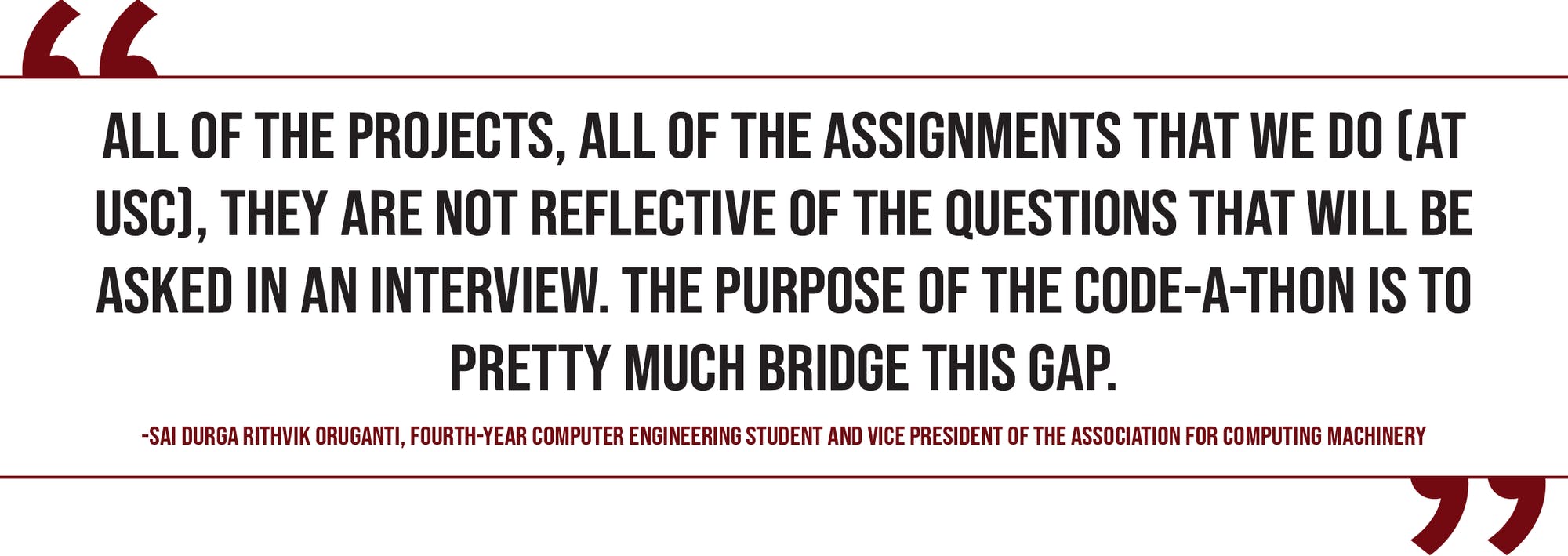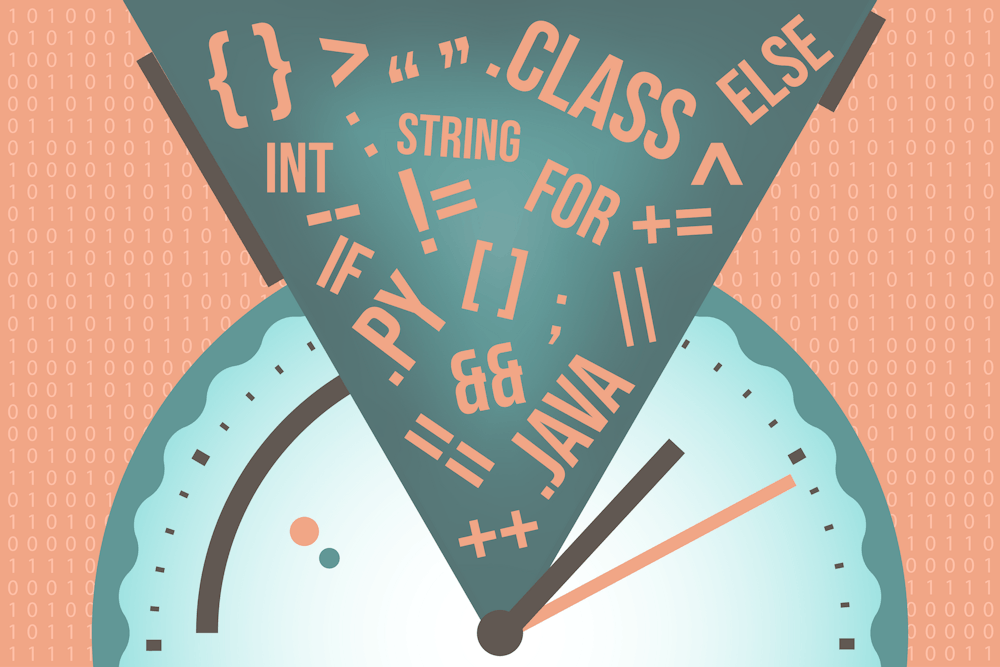While applying to work at around 800 different companies, Sai Durga Rithvik Oruganti, a fourth-year computer engineering student and the vice president of the Association for Computing Machinery, realized the disconnect between what he learned in the classroom and what he was asked during interviews.
Oruganti said he does not want students to get rejected from jobs because of their inability to apply what they've learned in the classroom to real life. He said he hopes that students can gain firsthand experience while tackling real-life problems in the engineering field through the biannual Code-A-Thon event.
"In university, the goal is to learn the tools, learn how to use the tools. That's it. What we don't learn is the implementation and the techniques that we can use with the tools themselves," Oruganti said. "All of the projects, all of the assignments that we do, they are not reflective of the questions that will be asked in an interview. The purpose of the Code-A-Thon is to pretty much bridge this gap."

Code-A-Thon, a 24-hour programming competition where participants race against each other to solve algorithm-based questions, is designed to help students develop skills for jobs in the engineering field that aren't covered in USC's curriculum.
This event is held once every semester, most recently from Oct. 27 to Oct. 28, 2023, by the Association for Computing Machinery in the Swearingen Engineering Center.
Code-A-Thon is separated into four divisions, which are based on the courses participants have taken and how much programming experience they have. Anyone, regardless of major, may participate in person or remotely at no cost, and some courses offer extra credit to students who participate in the competition, according to the Association for Computing Machinery's website.
"People that are just starting off with coding, they can get some experience programming and competing against each other. And we're all solving real-world, fun problems and trying to do it faster than each other," said Daniel Gleaves, a fourth-year computer science student and the president of the Association for Computing Machinery.
Students can win first, second and third place in each of the four divisions. These divisions ensure that each student has a fair chance of competing and that students do not have unfair advantages over those with little to no programming skills, Gleaves said.
"We're trying to use the Code-A-Thon as a fun way for (upperclassmen) to practice for technical interviews. But we have the lower divisions for just anybody who wants to get involved with programming," Gleaves said. "We're all there in the same space so that if you run into any issues or have any questions, we're there to help."
Leaders of the Association for Computing Machinery help students to understand what to expect during technical interviews, which they must complete when applying for jobs in the engineering field, during the competition.
Nathan Bickel, a third-year math and computer science student, participated in three Code-A-Thon competitions and said that his experience gave him the opportunity to practice real world programming problems with in a fun environment.
"You're just trying to write code. It gives you an input, and you're trying to write code that will give you the right output," Bickel said.
The harder a problem is, the more points it will be worth. According to the Association for Computing Machinery's website, for each question, there are "test cases" that test the participant's solution against a variety of inputs. The percentage of test cases that the participant matches determines how many points they receive for that problem.
The group said the next Code-A-Thon will take place either in the middle or near the end of the spring 2024 semester, though the exact date is still being determined.
"I'd say definitely come out," Bickel said. "There's really no pressure or anything. You can try however many problems you want, and there's free food. It's free to sign up, and you can just come by."

